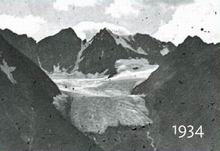Climate Network Funding Announced
By 250 News


A new climate research network is being launched and UNBC is one of the players.
Dr. Brian Menounos is the principle researcher of a team that has been granted a $2.1 million dollar grant from the Canadian Foundation for Climate and Atmospheric Sciences. The grant is for a four year research project that will focus on the climate clues evident in glaciers and in the sediment in lakes.
Glaciers cover about 10% of B.C.’s land mass. Menounos will try to secure samples from remote glaciers in the Coast, Columbia, Selkirk, Cariboo and Rocky Mountain Ranges, those samples may provide valuable clues to 400 years of climate changes and how the glaciers have reacted to those changes. The project will also attempt to predict how glaciers will change over the next 50 to 150 years.
The work is a collaboration of Menounous, Dr. Peter Jackson, Dr. Stephen Dery, Dr. Roger Wheate and Shawn Marshall from UNBC, plus 6 researchers from other Universities.
In a recent article Menounos penned for the “UNBC Update”, he says that outside of far north reaches, the warming of western Canada over the past 150 years has been more severe than anywhere else on the globe. In addition to the work on glaciers, the collection of lake sediment reveals flooding events through layers that are much thicker than others.
In the “Update” article Menounos says the research won’t be easy “but we know where to find our clues, buried under layers of mud and ice.”
Previous Story - Next Story
Return to Home









